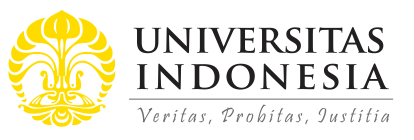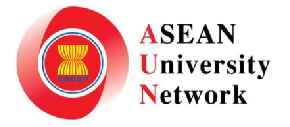
Abstract
Community participation in building climate change resilient rural housing: a case of the Jamuna river basin of BangladeshAbstractThe climate resilient cluster village was established by an NGO named “ActionAid Bangladesh”. The study was undertaken to ensure safe community living for the inhabitants of a vulnerable ecological zone of Bangladesh.. The experience was that local people had their houses destroyed by flood almost every year with far-reaching threat to livelihood and solemnity of women. It was therefore felt essential to facilitate the community in building multi-hazard resilient houses so as to make themselves self-protective from climatic hazards like windy storm, theft etc besides flooding. Moreover, as the poor had usually no savings or insurance, there was additional need to make provision for livelihood sustenance. There was need therefore to provide for some flood free land e.g., kitchen garden to grow vegetables and fruits for both self consumption and selling in the market, pond for fish culture etc. The program started with a threadbare discussion with the vulnerable communities in a participatory manner where the program staffs had discussed with the community groups, especially the poor, to generate the basic analysis of vulnerabilities, the community is facing and its link to climate change. The community itself did the analysis and analyzed the vulnerability faced by them. The final result was building of climate resilient cluster village housing for 10 families whose dwellings were devastated almost annually by flood. A social and economic feasibility analysis was carried out to determine scaling up of these types of adaptations to similar ecological zones of the country and elsewhere.
References
ActionAid Bangladesh Various documents of related to the two projects (un-dated.
ActionAid Bangladesh, BCAS/ARCAB and IIED (2012), Ensuring Access to the Climate Vulnerable: Financing Local Adaptations, published by Action-Aid, Bangladesh, Dhaka.
BCAS (2012), Analysis of Research and Policy “gaps” for Climate Resilient Farming System Intensification in Bangladesh, Report submitted to IFPRI-New Delhi.
BCAS (2012), Role of Members of Parliament in Combating Climate Change: The Case of Coastal Agriculture and Livestock, Report prepared for the Asia Foundation and USAID, Dhaka.
BCCSAP (2009), Bangladesh Climate Change Strategy and Action Plan, Ministry of Environment and Forests, Government of Bangladesh.
BDRC (2008), Effective and Efficient Adaptation Policies to Climate Change in Bangladesh: Lessons and “gaps” from the Literature by Bernhard G. Gunter, Ph.D. Bangladesh Development Research Center, BDRC.
CARE INTERNATIONAL (2015) Community Based Adaptation: An empowering approach for climate Resilient development and risk reduction.
CDMP (2009), Priority areas of Research following BCCSAP, CDMP I.
DoE (2005), Department of Environment, Government of Bangladesh, Climate Change and Bangladesh, Department of Environment, Government of People’s Republic of Bangladesh.
DOE (2009), Department of Environment, Government of Bangladesh, Annotated bibliography on Climate Change and Bangladesh.
EEPSEA (2016), Economy and Environmental Program for South-east Asia, Climate Resilient Housing central Vietnam.
GED (2011), Planning Commission. “Capacity Building for the Planning Commission: Poverty, Environment and Climate Mainstreaming (PECM) Project”.
Islam, Rezaul (2016) NGOs and Community Empowerment in Bangladesh, Springer Publication.
Kevan Christensen, Sajid Raihan, Rubayat Ahsan. A M Nasir Uddin, Chowdhury Saleh Ahmed and Helena Wright (2012), “Ensuring Access to the Climate Vulnerable: Financing Local Adaptations”, published by Action-Aid, Bangladesh, Dhaka.
Klaus Eisenack (2011), Theory of Adaptations, Department of Economics, Carl van Ossietzky University Oldenburg. 26111, Oldenburg, Germany.
Maplecroft (2015), Climate Change and Environmental Risk Atlas, Bath, UK.
Relief-web (2014), Sheltering from a Gathering Storm: The Cost and Benefits of Climate Resilient Shelter, Climate and Development Knowledge Network.
Rudmin, F.W., and J.W. Berry, (1987) “Semantics of Ownership: A Free-Recall Study of Property,” The Psychological Record, Vol. 37, 1987.
San Fankhauser (ed.) 2016, The Economics of Climate Resilient Development, Edward Elgar Publishing UK and USA.
Stern, Nicholas (2007), The Economics of Climate Change: The Stern Review (Cambridge, UK: Cambridge University Press).
UNEP (2013), Research Priorities on Vulnerability, Impacts and Adaptation to the Climate Change Challenge, Nairobi. Kenya, UNEP.
US Environmental Agency (2016), Planning Framework for a climate resilient economy, USA.
Wong, (2015) Manufacturing climate resilience and development, Global Views “Planet worth”.
Recommended Citation
Ahmed, Chowdhury
(2017).
Community participation in building climate change resilient rural housing: examining the socio-economic viability of case In the Jamuna River Basin of Bangladesh.
ASEAN Journal of Community Engagement, 1(2).
Available at: https://doi.org/10.7454/ajce.v1i2.94







